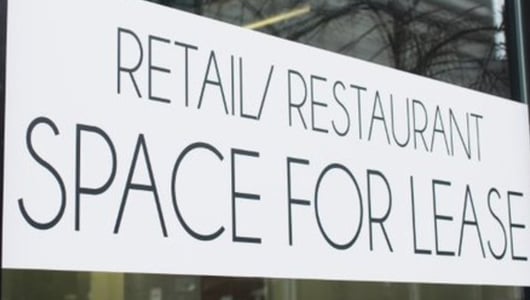The current business rates holiday has provided businesses, many of whom have been forced to close or suffered a significant impact on their income, with the means to fight for their survival.
However, landlords who have empty properties or who have lost tenants during the pandemic have not received the same level of financial support from the government. What support can business owners and landlords expect from the government once the current business rates holiday ends?
The country had been eagerly awaiting the Prime Minister’s announcement on 22 February and his “road map” for exiting lockdown 3 but for businesses, landlords and leaseholders of commercial property all eyes will be on the Chancellor’s budget on 3 March.
It is widely anticipated that the Expanded Retail Discount 2020/ 21 scheme which has provided 100% rate relief for eligible occupied premises, will be extended beyond 31 March 21. Scotland has already announced that there will be at least a three-month extension to their equivalent scheme, giving some comfort to those concerned over their rate liability beyond the end of the financial year.
On 3 February 2021, the Treasury made a written ministerial statement to parliament asking billing authorities to consider waiting until after the budget has been set down before issuing bills for 2021/22 signalling further relief will be awarded to struggling occupiers of commercial property.
Reliefs granted during the last 12 months almost exclusively afford relief to occupiers. Those who have been forced to close have been worst affected during the Pandemic.
However, for owners and leaseholders of vacant commercial property there has been little support and their rate liability is still payable and there is not expectation that this will change in when the budget is announced.
What does this mean for landlords?
Under the current Non-Domestic Rating (Unoccupied Property) (England) Regulations 2008, once a retail or office property has been physically vacated a three-month exemption (six months for warehouses) will be afforded to them.
These regulations were designed to encourage the occupation of vacant premises and remain in force. What also remains since their inception, is that not many landlords want an empty property on their hands!
If you, as the owner of a commercial property become aware of a struggling business or that the business has vacated or worst case fall into administration, you should monitor the physical occupation of the property so that you are not caught out when you receive a rate demand on the properties returned to you. Rate relief runs with the property and not the person entitled to occupation, therefore for landlords and owners you should be mindful that if a property is returned to you and the previous leaseholder may have claimed 3 months relief you will not be entitled to further relief.
At Cluttons we advise upon all rating matters and specialise in the provision of Empty Rates Advice.
If you are currently holding any vacant commercial property where your initial period of relief has been eroded or are aware that you will be faced with an empty rate liability soon, it is important that you plan for this and we can advise to maximise any savings available to you. We have a range of strategies that could reduce your liability and although one size does not fit all, we are confident that there will be a strategy available to you.
Rate demands will be issued over the next six weeks and if you require our advice either, occupied or vacant, as to how we can reduce your rate liability please contact us for further advice.
Related news

Businesses must act now or face losing thousands in rates savings dating back to 1 April 2017
With a global pandemic to deal with, accelerating structural changes particularly in retail, business owners have been hit hard, despite recent Government pledges and rate reliefs.
With the online sales tax consultation now closed, what can we expect, and will it happen any time soon?
Rishi Sunak was plauded by most for responding so quickly to support small businesses as Covid hit. But what a shame the years of campaigning didn’t trigger a revolutionary business rates consultation before an unprecedented global pandemic hit an already underperforming high street retail and shopping centre sector.
Spring statement 2022 comments
On Wednesday 23 March 2022, the Chancellor gave the Spring Statement to Parliament. Here, our residential and commercial teams highlight key points, and the potential impact on the UK property market.
The Trojan Horse of more frequent revaluations
The Local Government Finance Act 1988 introduced 5 yearly rating revaluations, the first being 1990 and this quinquennial cycle continued until 2010.
Changes to the retail relief scheme
The British Retail Consortium have reported that there has been a growth in high street retail sales from April to June rising 28.4% from a year ago and up 10.4% from 2019.
COVID-19 MCC Appeals Ruled out by government
It has been reported by HM Treasury that government will legislate against appeals citing COVID-19 as a material change in circumstances (MCC).
Empty rate solutions: Opportunities to reduce the business rate on an empty property
If you are currently holding any vacant commercial property where your initial period of relief has been eroded or you are aware that you will be faced with an empty rate liability soon, it is important that you plan for this and maximise any savings available to you.
Does the budget go far enough on business rates?
The Chancellor delivered his budget for recovery this week. As expected, there was some help for business ratepayers, but not as much as was needed.